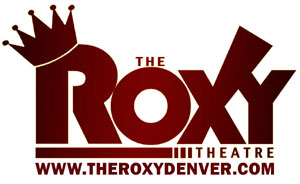The Manager’s Corner January 2013
by Chris Daniels
I’ve managed my own band since the 1980s and despite the amazing change in technology, success in the music business is built around four tried and true elements: great music, really hard work and timing (often mistaken for luck). The other key element is getting the help you need to make that luck happen. These days that help is everywhere. The book I wrote for my UCD class on artist management is called “DIY: You’re Not in it Alone” and that is exactly what you need to understand.
You may think that the last thing any musician cares about is taxes or finance. But I can guarantee you that whether it is Mick Jagger explaining the VAT (Europe’s value added tax) to Walter Yetnikoff, or James Brown negotiating a bonus for his appearance in Boston the night Martin Luther King was killed (that kept that city from rioting), smart musicians KNOW what’s going on with the money. And in Colorado there is one question that has emerged over the past two years that really has to be addressed. The question is, how are you going to structure your business – and specifically, how you and your fellow band mates will deal with the issue of being an employer vs. being an independent contractor.
Don’t be fooled by those who say, “I don’t care about that crap. It doesn’t apply to me.” Reality check: this applies to any band that is making money playing and recording music. Let me ask you a few questions to further the point: (1) What happens if one of you does a gig, or you do a record, with another band while working in your main band? (2) Is that going to get that band member fired? (3) Who dictates the music arrangements for your main band, and do you all have to play those arrangements? (4) Who sets up what time you load in and play? (5) Who issues the checks paying band members? These are issues of “control.”
You may ask, “What does all this have to do with business and taxes and whether I’m an employee or an independent contractor (IC)? Here’s the deal. Any time your endeavors as a musical group pay the members of the band a “wage,” the group, or the leader of the band, is considered an employer by the Colorado Department of Labor and Employment, (CDLE), and that means all of us who play for some part of our living need to understand the difference between the employee/employer relationship, and independent contractor relationships: again these are issues of “control” which dictate which one you are.
What does it mean if you are an employer? You’ll need to withhold money for unemployment insurance as well as social security and federal taxes – W2s. If you set up your band’s business as an independent contractor relationship you will have a different batch of responsibilities including filing 1099 and1096, plus creating and executing Independent Contractor Agreements and conforming to the governing statutes.
What is essential to understand, is that if you do business as independent contractors, the band can be challenged by CDLE if you don’t follow the nine rules in the statute governing IC. It’s NOT because they are a bunch of heartless bastards. The CDLE honestly has a hard time finding a difference between your band and a part time employee. To the auditors at CDLE, they see little difference between a waitress who works at Denny’s, Village Inn, and The Breakfast King to cobble together a living, and a sax player who plays in your band and in three other bands to survive. To the CDLE, both the waitress and the sax player are employees of legitimate businesses, and should therefore be able to apply for unemployment if laid off from any of those gigs. What makes a band different from Denny’s? Well, a lot of things, but YOU must prove that.
There are exemptions in the Colorado Revised Statute (C.R.S. § 8-70-115), which clearly helps define how independent contractors are different from employers. (Check out – http://empoyment-law.burgsimpson.com/pdf/common-law-employee.pdf). They fall into areas of “control” of the work being performed. It is a long discussion, and I hope you will check out these issues if you are running a band that is starting to get paid real money, or if you are already in one.
And here is a little extra help we have put together. Along with COMBO, the Colorado Music Buzz and some great musicians like Hazel Miller, Mike Marsh, and others, some event planners, plus the good folks at CDLE, we are going to have a town hall meeting about this issue on January 27 (place and time to be announced on the Music Buzz website and COMBO newsletter in the next week or so). PLEASE do your homework before you come, and look at how this issue applies to you or your band.
We will be discussing the kind of “Independent Contractor Agreement” you need to have in place and the practices (rules) you need to follow in order to make this work the best for you and your band. And this applies to more than just songwriters, bluegrass musicians, rock and progressive bands, cover bands etc. it applies to DJs, EDM artists, as well as hip hop and rappers. You name it, anybody who is making more than about $600 a year from working in music, whether you lead it or are just the sideman (side-person) you need to understand the basics of C.R.S 8-70-115 and what it means for you.
Category: Shop Talk


















